Although everything has been leading up to the moment when you bring your baby home (or babies, if you've had more than one), it’s probably still a bit of a shock when it finally happens! So don’t worry if you’re feeling a bit nervous – it’s totally understandable.
The good news is that you’ll have plenty of expert help around you, with your midwife or health visitor dropping in to check that everything’s going well, and answer any questions you might have. We’re here to help you too, with some top tips for those early days.
Ready Steady Baby from NHS Inform is a great source of information to help you cope with the first weeks of parenting a new baby.
Top tips from parents
Tip #1: Ask for help
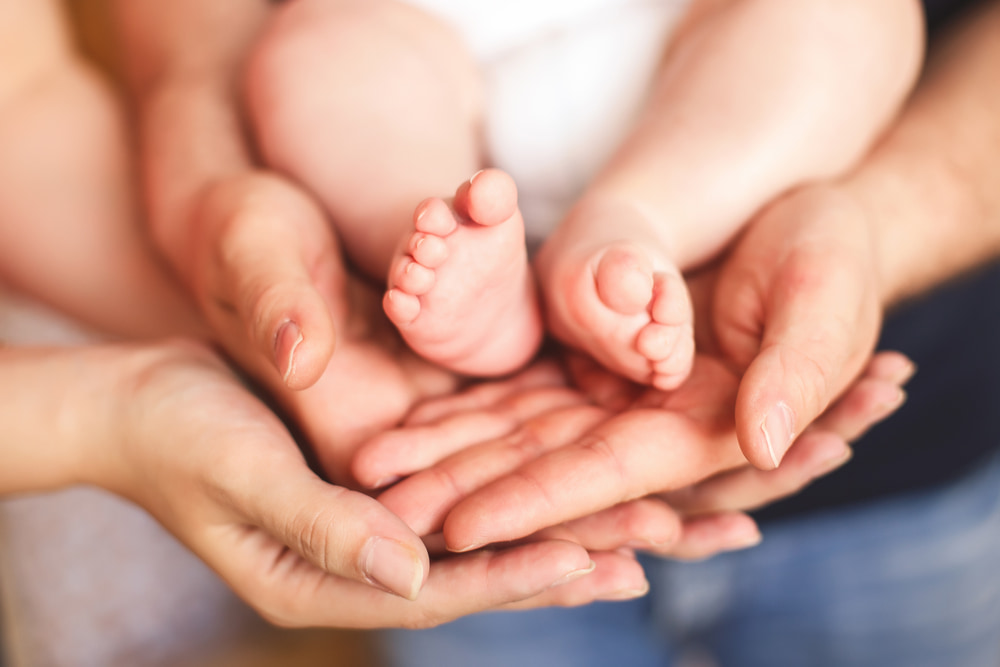
Don't be afraid to ask for help. If you have friends and family around, they'll probably be more than happy to lend a hand. So why not ask them to help out with things like cooking, cleaning, and keeping the fridge stocked with healthy food?
If you don't have friends and family nearby, talk to your midwife or health visitor about other sources of support, like Home-Start or a local group you can join.
Tip #2: Cuddle lots
Use these first few days to hold and be close to your new baby.
Lots of cuddles and skin-to-skin contact are really important and have so many brilliant benefits, including:
- helping you form a bond with your baby
- helping them settle
- supporting their brain development
- boosting your confidence as a parent
- regulating their breathing and temperature
- helping them form a secure attachment, if you're breastfeeding
- helping you understand their feeding cues, whether you're breastfeeding or using formula.
Tip #3: Get to know your baby
Get to know what makes your baby tick! Although some things are common to all babies – such as the need to be close to their parents to feel secure and loved – every baby is different. And the relationship you create is different for every parent, too. Experiment to see what kind of things settle your baby – do they like walks outside? Or songs? The more time you and your baby spend close together, the more you will pick up on all of their little cues. If you have any concerns your midwife or health visitor is there to help.
Read our page on getting to know your baby for more on this.
Tip #4: Bonding
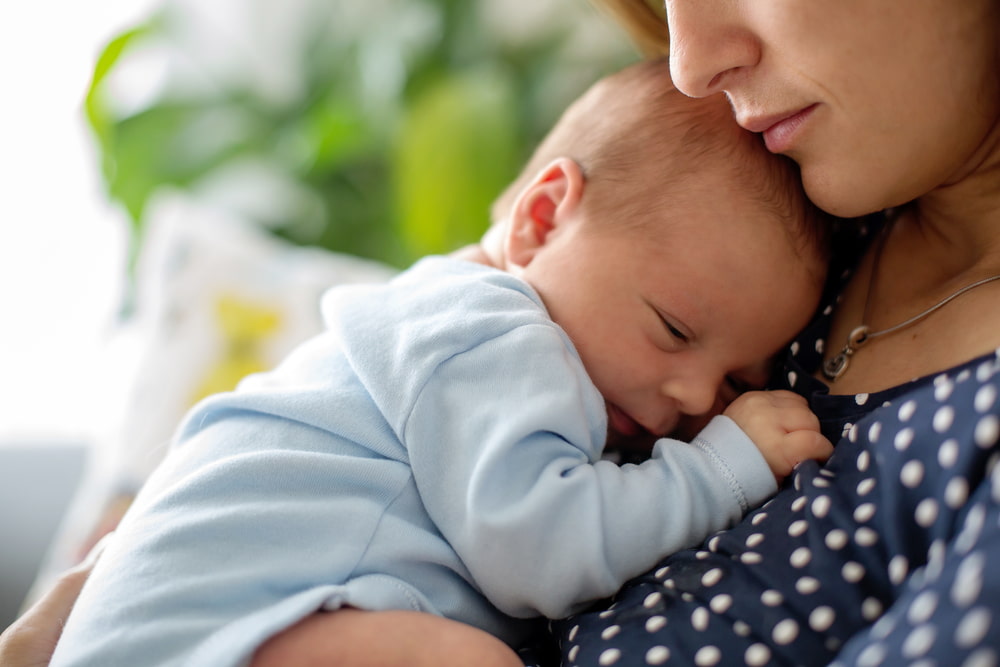
Babies often seem to respond more quickly and settle better for mum, as usually mum is the main care giver and a new baby is only mature enough to make that secure attachment with one person. However, your partner can bond with your baby too, and in time the baby will develop a bond with them just as equally. Burping baby, cuddling and nappy changes are all things they can help with.
Our bonding tips for dads and partners have more suggestions for building that special relationship.
Tip #5: Everyone needs some time out
Sometimes it’s hard to know exactly what the baby needs and that’s normal. However, sometimes you need to take a short break and relax, especially if you’re feeling a bit frustrated. Put your baby down somewhere safe, or ask someone else to hold them so you have a chance to clear your mind. Don’t feel guilty – everyone needs some time out. Sometimes your little one is just over stimulated and needs time to calm down as well.
Tip #6: A change of scene
Take your baby for a walk or a drive – a change of scene can help distract them.
Tip #7: If your baby is crying
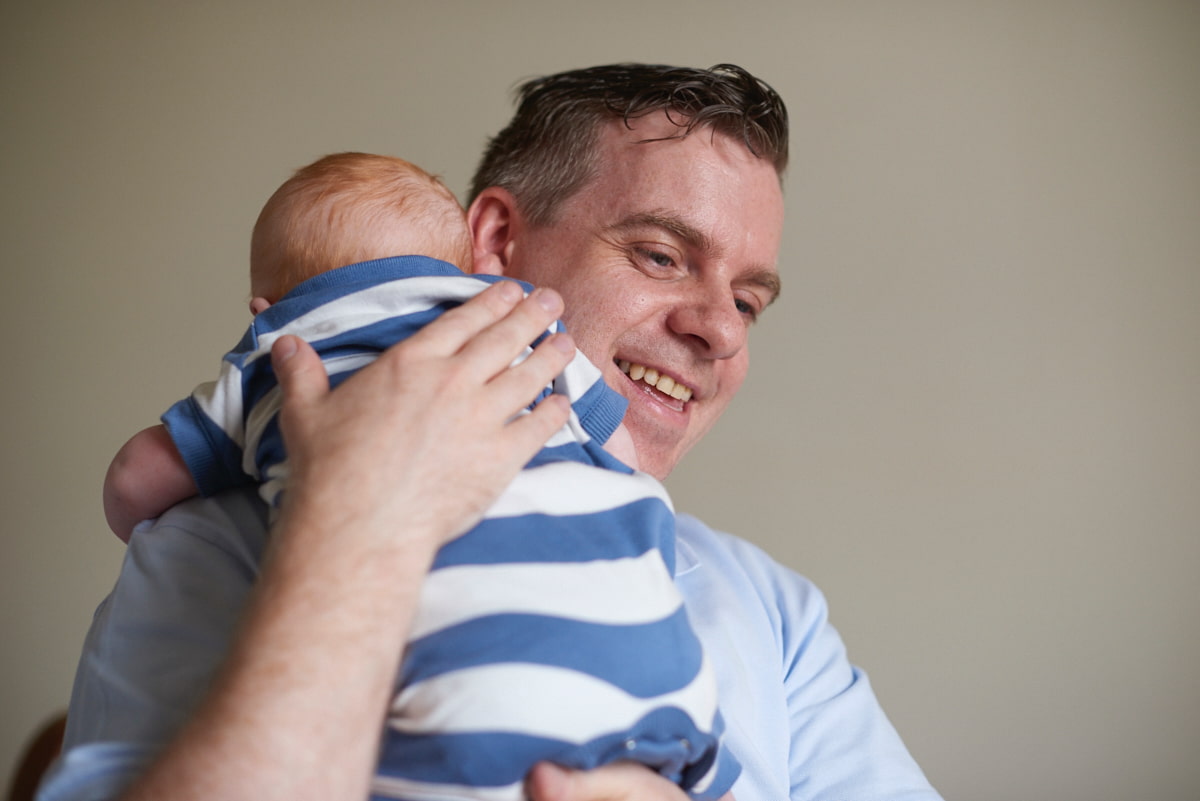
All babies cry – it’s perfectly normal. It’s their way of communicating with you.
If your baby's crying, go through a quick mental checklist of what they may need. Are they hungry? Does their nappy need changed? Are they tired? Wanting a cuddle? Too hot or cold? Wind? Bored? Over-stimulated?
Read our page on Why is my baby crying for more tips and information.
Tip #8: Trust your instincts
As you get to know your baby you will pick up more quickly on the baby’s cues, learn what the cause is and be able to respond to them more quickly and be able to settle them. Using the wrap from your Baby Box will help your baby to feel calm and secure.
Tip #9: Settling your baby
If your baby is unsettled, a very gentle massage or a warm bath can help to relax them. Some babies become unsettled if they need changing, so change nappies as soon as you can to keep your wee one clean and dry.
Tip #10: Regular nappy changing
Being organised around nappies and changing them regularly, can help your baby feel happy and settled. Remember to check that the tabs are tight enough at the top, and that you can get two fingers in between the nappy and tummy.
Tip #11: Think hands and no kisses
Newborn babies have immature immune systems, which means they're particularly at risk from infections.
So it's important that everyone in your baby's life does all they can to reduce the risk of infection. A good way to do this is to follow 'THANKS' - Think Hands And No Kisses. This is a reminder to:
- Always wash your hands before touching a baby
- Only kiss a baby if you're their parent or main carer.
You can find out more about keeping babies safe from infection on the Lullaby Trust website.
What the parents say
“I just think spending that time with them, taking that time, even reading stories, even when they’re just little. Even though they don’t know exactly what you’re saying, but they still know your voice, and it’s just the loving touches, the playing and talking and stroking them and stuff like that that they love and it just builds the bond.
"Being a first time mum is really daunting, you’re not sure, it’s the first time you’ve done anything, you’re worried about if you’re doing something right or if you’re meeting their needs and everything. I suppose sometimes you feel guilt as a mum as well; I always feel guilty for doing stuff for me, I don’t know, but it just comes across if I go out and I buy myself something instead of buying Calen something or if I go out for a few hours I feel guilty for leaving him with Grandparents or whatever. But, Shaun, he’s really reassuring, he makes sure that I know that I’m a good mum and he’s a great dad as well, and so I can’t fault him.”
What the professionals say
“Keep in mind the other people in the community – there are loads of groups out there, and loads of other parents that feel like they’re in the same situation, so they’re all reaching out to do the same thing.”
“I think parents think a lot about what equipment they want to buy for their baby and what toys they’re going to buy and I would say for a newborn baby the thing that they want most is you and their favourite toy is your face, and actually the way you hold your baby and the way you look at your baby is the most important thing and in the first few weeks you don’t really need much more than that.
“Just relax about that and just spend time getting to know your baby because the more you get to know your baby, the more the baby gets to know you, that’s when the bond really strengthens”
"I would encourage mums to consider the positioning of their baby and to position their baby for success. It can be incredibly useful to see their face so you might be able to anticipate before a baby gets into a full cry.
"Babies often cry as a late stage in trying to communicate with you when they need help. That’s why it’s always a good idea to pick your baby up if they are showing signs of discomfort, or appear unsettled. The sooner you respond, the less likely they’ll need to cry. If your baby is crying, they are trying to communicate with you and tell you something - so pick them up as soon as you can and give them a cuddle."
“Babies are very communicative! You’ll find that if you are responsive to your baby, and inquisitive about what they are trying to tell you, you’ll be able to react as quickly as possible to their needs and they’ll stay settled.”
“The more skin to skin and close contact that parents can get with their child, the less likely the baby is to cry for long periods of time.”
"By noticing those little cues that your wee one is hungry - or maybe something else is wrong - and responding before they become upset, you can avoid trying to feed a baby who has become distressed.”
If you have twins, triplets or more
Bonding with twins or multiples may feel a wee bit trickier, as you'll have less time with each baby. But there are lots of things you and your partner can do to strengthen your bond with your wee ones. For example, you could take it in turn to spend one-on-one time with each baby, or ask a trusted friend or family member to look after one baby for a while so you can focus on the other. You can find lots more tips for bonding if you have twins or more on the Twins Trust website.
More information
To find out more about health visitors and the health checks your baby can get, speak to your GP or health visitor or visit Ready Steady Baby from NHS Inform.
There’s also more information on how to settle your baby and change nappies.
If you're expecting twins, triplets or more, the Twins Trust offers advice and support.
 Activities & Play
Activities & Play Behaviour
Behaviour Childcare
Childcare Development & Growing Up
Development & Growing Up Family, Friends & Relationships
Family, Friends & Relationships Feeding Your Baby
Feeding Your Baby Food & Eating
Food & Eating Health & Safety
Health & Safety Mental Health & Wellbeing
Mental Health & Wellbeing Money & Work
Money & Work Online Behaviour & Safety
Online Behaviour & Safety Pregnancy & First Days
Pregnancy & First Days School & Education
School & Education Sleep
Sleep

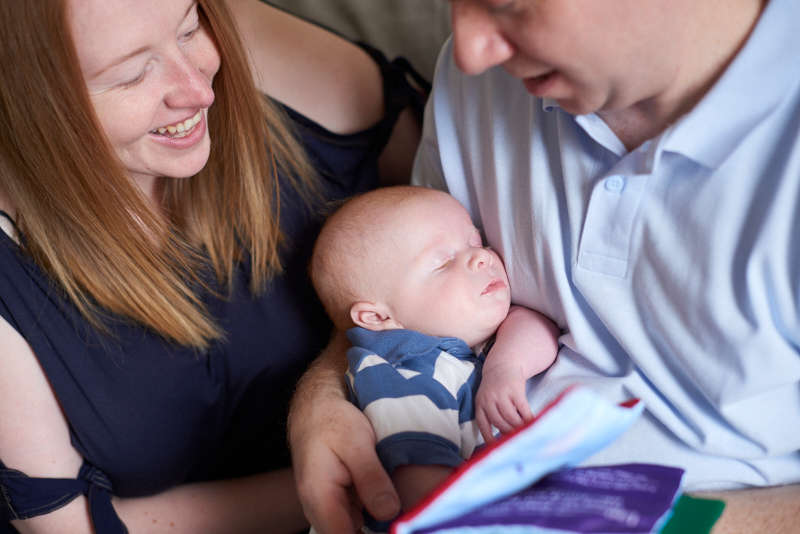
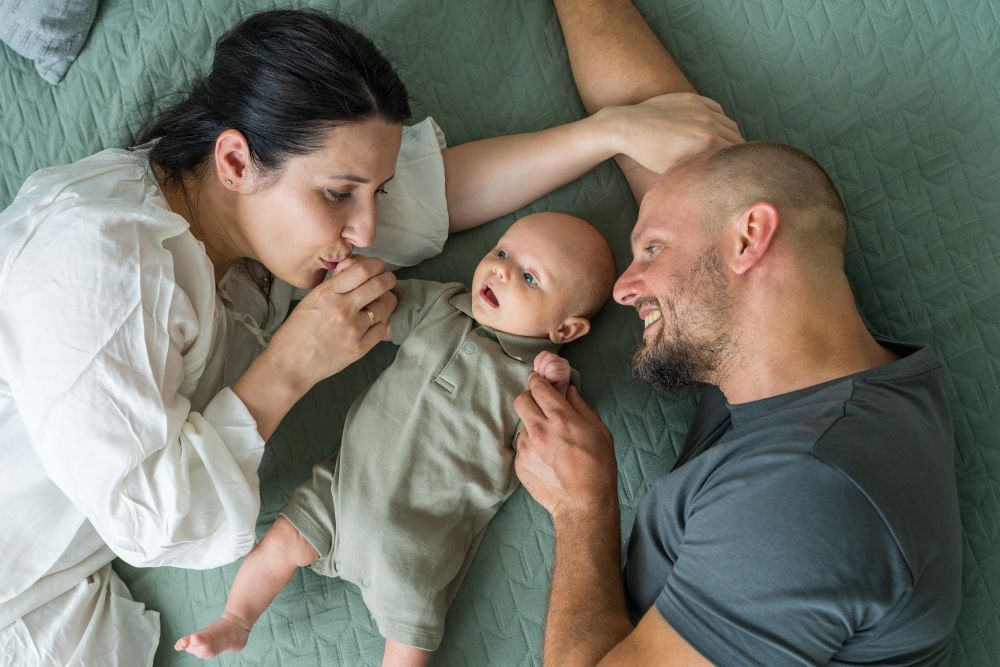
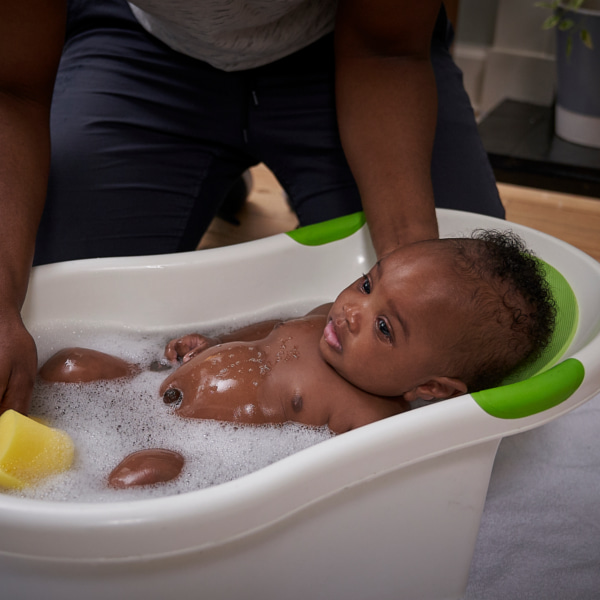
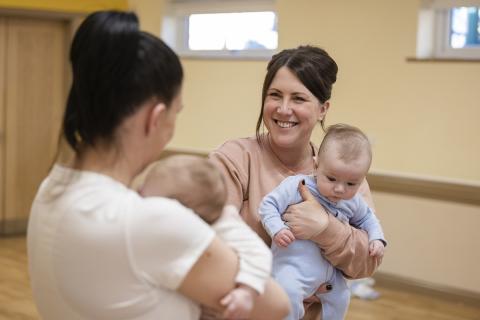
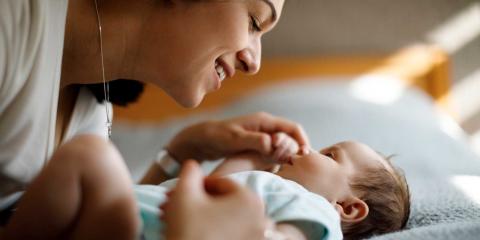


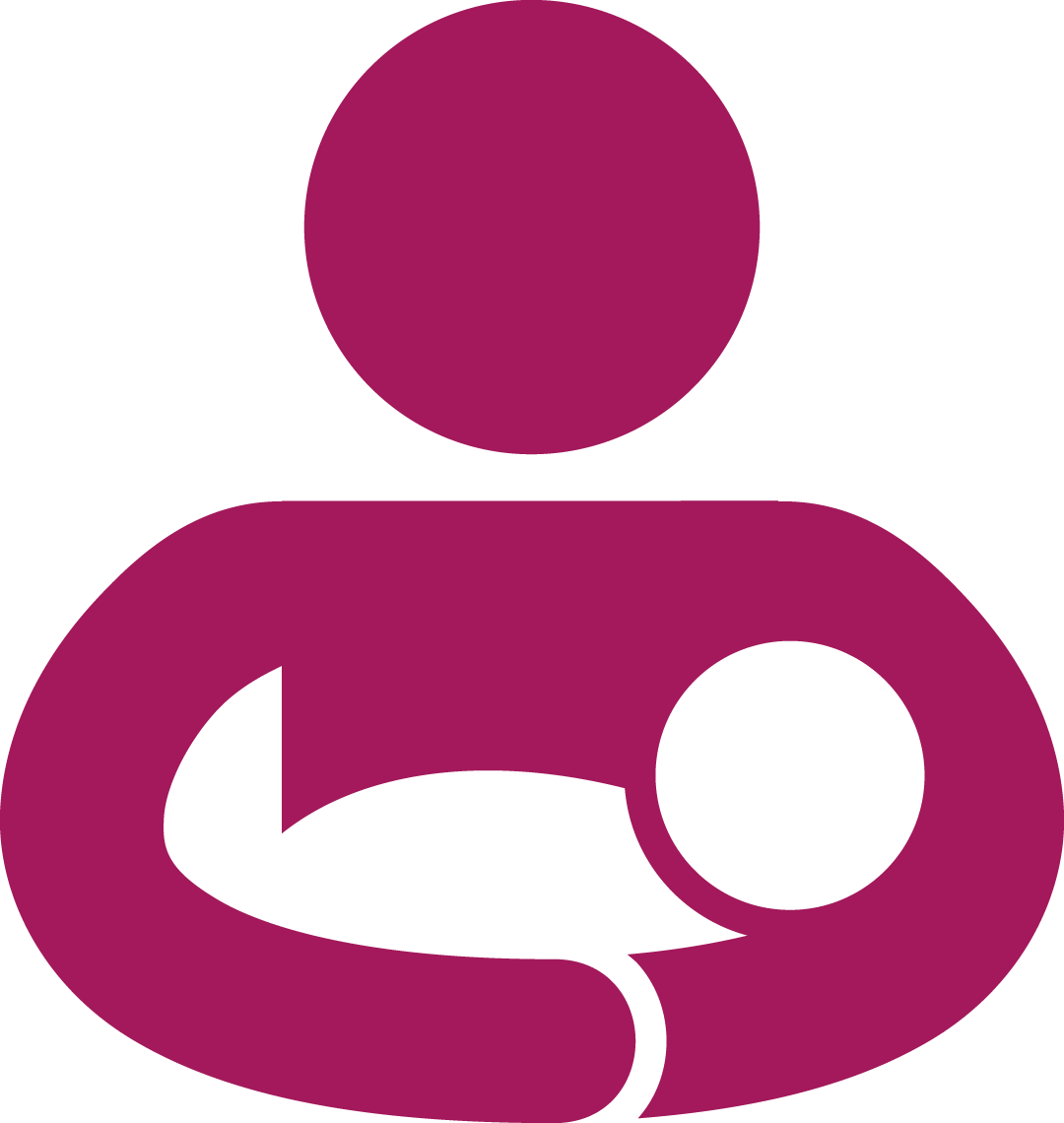 Feeding Your Baby
Feeding Your Baby
 Sleep
Sleep